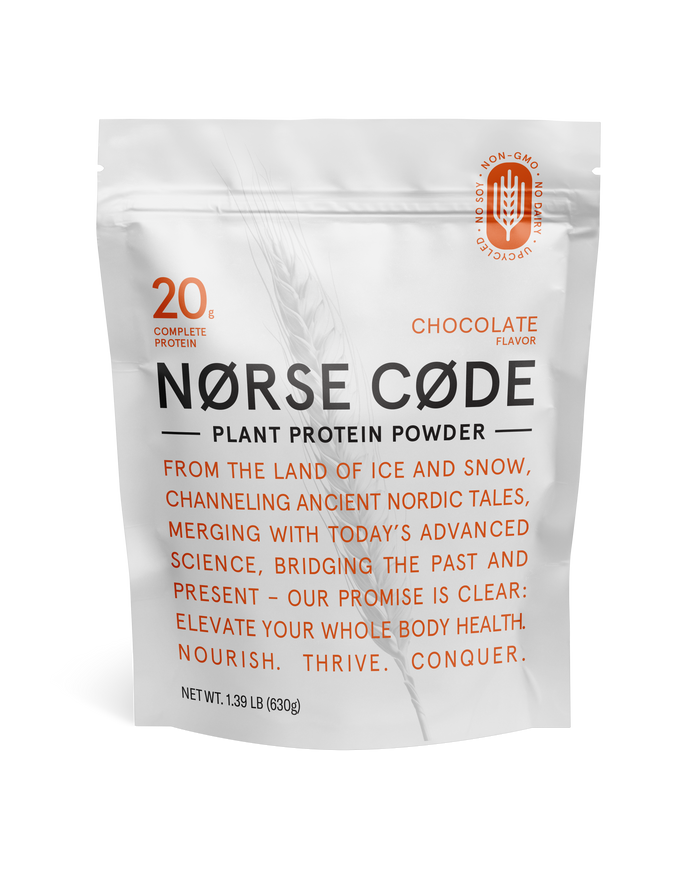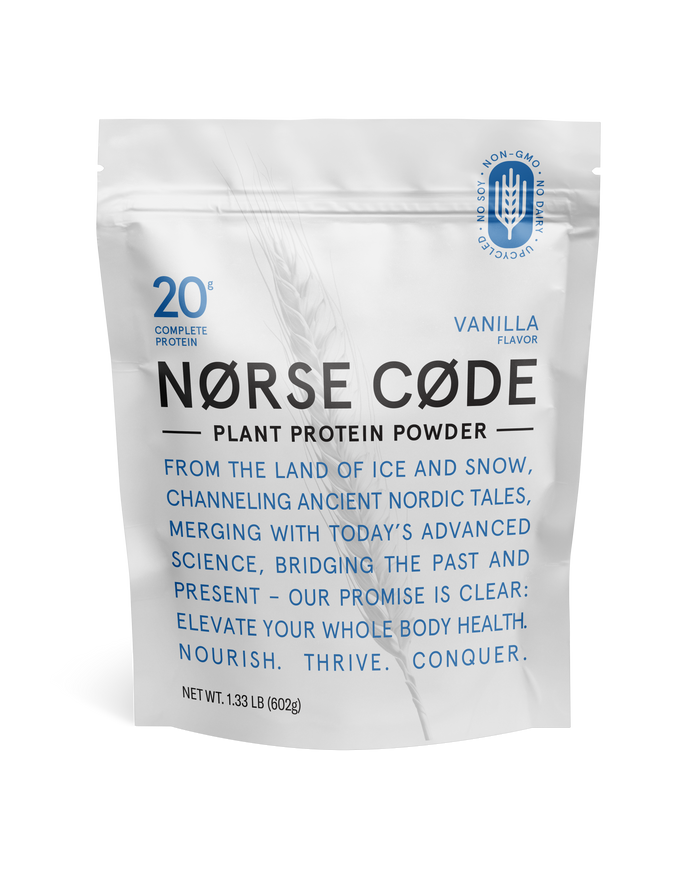
Introduction: Rethinking Protein for a Sustainable Future
For decades, whey protein has been the go-to supplement for athletes and fitness enthusiasts. But with growing awareness of sustainability and health concerns, many are reconsidering their protein choices. This article explores the environmental impact of whey protein and why switching to plant-based alternatives, like NØRSE CØDE, is better for your body and the planet.
The Environmental Cost of Whey Protein
Producing whey protein is more resource-intensive than you may think. Its environmental impact goes beyond the gym, affecting ecosystems and natural resources at an alarming rate.
1. High Water Consumption
Dairy production demands vast amounts of water. A 2018 study from Science highlights that producing 1 kilogram of dairy-based protein can require thousands of liters of water, much of which is used in growing feed for cattle.
2. Land Use and Deforestation
The need for extensive pastureland and animal feed leads to deforestation, loss of biodiversity, and degradation of ecosystems. The same study from Science states that dairy production uses significantly more land than plant-based crops, which is a leading cause of habitat destruction globally.
3. Greenhouse Gas Emissions
Dairy production is responsible for 10-12% of global greenhouse gas emissions, with methane being a major contributor. The United Nations Food and Agriculture Organization reports that livestock is a major emitter, making it essential to seek more sustainable alternatives.
Want to learn how plant-based proteins are changing the game? Read The Evolution of Plant-Based Proteins: From Trend to Lifestyle to discover the future of nutrition.
The Case for Sustainable Protein Alternatives
In contrast, plant-based proteins, like those used in NØRSE CØDE, have a significantly smaller environmental footprint. Here's why:
- Lower water requirements: Crops like peas and upcycled barley require much less water compared to raising livestock.
- Reduced greenhouse gases: Plant-based production minimizes methane and other harmful emissions.
- Efficient land use: Growing crops for plant-based protein is much more efficient than raising livestock.
Learn more about our clean, sustainable ingredients in NØRSE CØDE: The Ingredients That Set Us Apart.
Why Choose NØRSE CØDE as Your Sustainable Protein Source
NØRSE CØDE’s upcycled barley sets us apart by combining innovation with sustainability. Here’s what you gain by making the switch:
- Upcycled ingredients: Barley byproducts, often discarded during beer production, are repurposed into nutrient-rich protein, minimizing waste.
- SmoothBlend™ technology: No chalky texture or grit—just smooth, delicious blends.
- Award-winning flavors: No more trade-offs between taste and sustainability.
Discover how NØRSE CØDE stacks up in Why NØRSE CØDE’s Plant-Based Protein Stands Above Whey for Athletes.
Benefits of Switching to NØRSE CØDE Plant-Based Protein
- Sustainable nutrition: Make a positive environmental impact with every scoop.
- Gentle on digestion: Avoid the bloating and discomfort often caused by dairy.
- Complete protein: 20g of plant-based protein per serving, providing essential amino acids for recovery and performance.
Ready to Make the Switch?
It’s time to fuel your body and protect the planet with NØRSE CØDE’s sustainable protein.
Shop NØRSE CØDE Now and join the movement toward better nutrition with zero compromise.
By making the switch to NØRSE CØDE, you’re helping to reduce food waste, lower carbon emissions, and support sustainable farming practices—one scoop at a time.
NØRSE CØDE Chocolate Plant Protein Powder
- Regular
- $44.50
- Sale
- $44.50
- Regular
-
- Unit Price
- per
NØRSE CØDE Vanilla Plant Protein Powder
- Regular
- $44.50
- Sale
- $44.50
- Regular
-
- Unit Price
- per
NØRSE CØDE Stainless Shaker
- Regular
- $35.00
- Sale
- $35.00
- Regular
-
- Unit Price
- per




